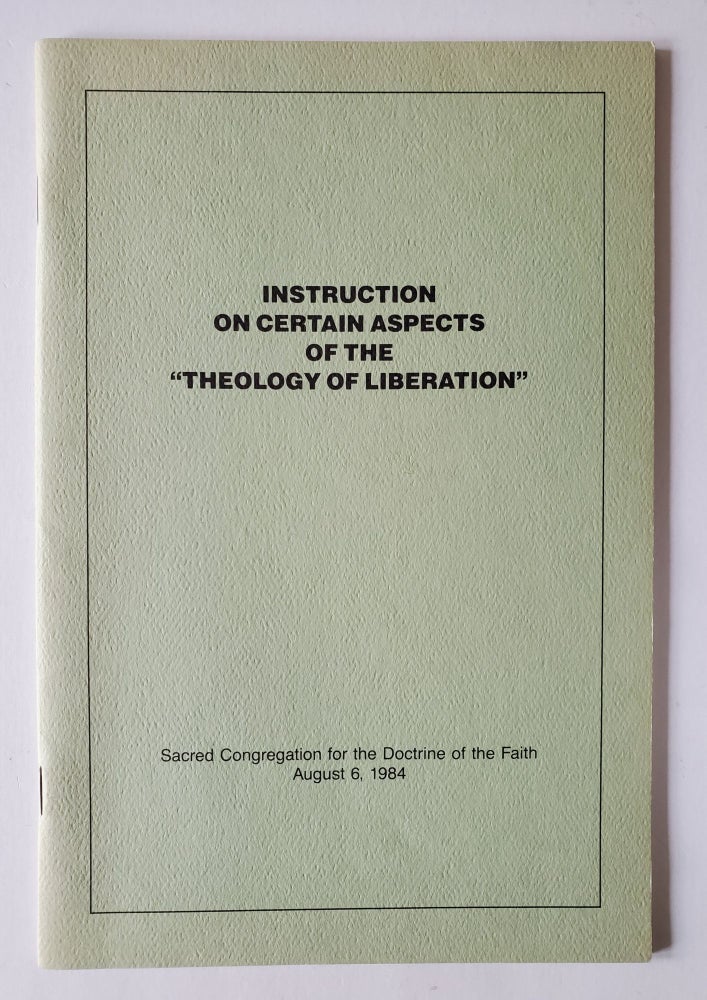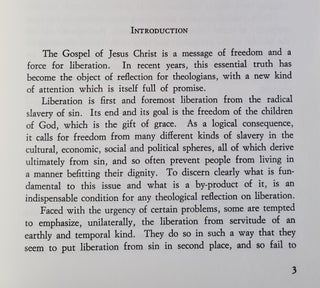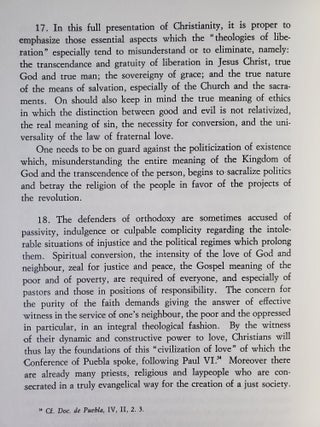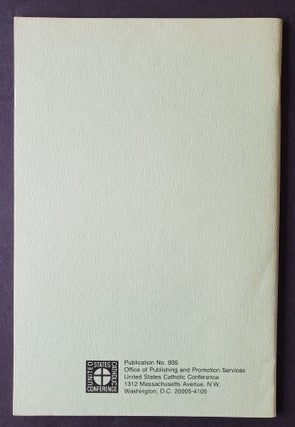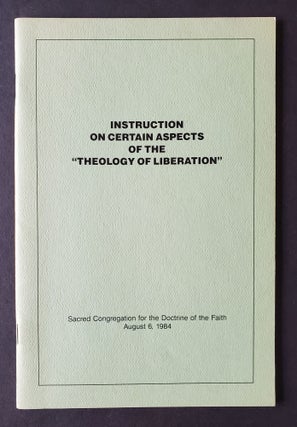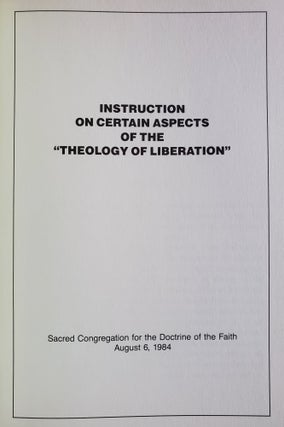Instruction on Certain Aspects of the "Theology of Liberation"
Washington D.C. Sacred Congregation for the Doctrine of the Faith, 1984. Octavo ( 8 7/8 inches tall), stapled in stiff pale green wrappers, printed in black. Slight toning to wrappers, else Fine. Item #1184
"THE DESIRE FOR LIBERATION FINDS A STRONG AND FRATERNAL ECHO IN THE HEART AND SPIRIT OF CHRISTIANS"
First English translation of Cardinal Ratzinger's refutation of Liberation Theology—a close collaboration with Pope John Paul II on a "theological exposition of a just social order."
Though the immediate catalyst for this instruction appears to have been Leonardo Boff's Church: Charism and Power (1984), the fundamental text of Liberation Theology is Gustavo Gutierrez's A Theology of Liberation (1971). Emphasizing a "liberation from below" of a "Church of the poor," Liberation Theology was a "mixture of secular ideologies and European theologies (Gutierrez himself had done prolonged study in Europe) that have not worn well" (Robert Royal). Pope John Paul II began commenting on Liberation Theology soon after his election. On a flight to Mexico (his first papal visit) in 1979, John Paul responded to questions from reporters with a memorable question of his own: "Ah, liberation theology. But which liberation theology?" Rephrased as "theologies of liberation," Cardinal Ratzinger (as the Prefect of the Sacred Congregation for the Doctrine of the Faith) "laid out the critical case. Mistaken views of man and the assumption that class struggle and violent revolution (instead of reconciliation and peace) were the necessary paths to freedom were rejected in the light of the fuller humanism and unity demanded by the Christian tradition" (Robert Royal).
Consists of an Introduction, I. An Aspiration, II. Expressions of this Aspiration, III. Liberation, a Christian Theme, IV. Biblical Foundations, V. The Voice of the Magisterium, VI. A New Interpretation of Christianity, VII. Marxist Analysis, VIII. Subversion of the Meaning of Truth and Violence, IX. The Theological Application of this Core, X. A New Hermeneutic, XI. Orientations, Conclusion (Joseph Card. Ratzinger / Prefect). This pamphlet was the first of a two-part collaboration between Pope John Paul II and Cardinal Ratzinger. Certain Aspects of Liberation Theology was followed by Instruction on Christian Freedom and Liberation (1986). Together, these instructions situated Liberation Theology as properly "based in a Christian theology of man and society that emphasized four fundamental principles: human dignity, solidarity, subsidiarity, and the common good. These remained the heart of Catholic social teaching" (Royal). Printed in Washington D.C. as Publication No. 935 of the United States Catholic Conference. Royal. A Deeper Vision: The Catholic Intellectual Tradition in the Twentieth Century.
Price: $65.00

